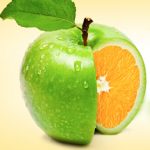Coconut water and coconut milk are vulnerable to food fraud because they can easily be diluted with other liquids and adulterated with undeclared ingredients, such as added sweeteners and dairy products, that are difficult for consumers to detect. The FoodChainID Food Fraud Database[i] (formerly the Decernis and United States Pharmacopeia [USP] database) contains 20 records related to coconut water, coconut milk and coconut milk powder. These include one story of a “coconut water” manufacturer that was found to be using water, sugar and flavoring to make the beverage, which contained no coconut at all.[ii]
Because the potential diluents and adulterants are cheap and easily available, the fraud is both profitable and easy to perpetrate. Organic coconut products are also at risk of having their organic status faked. Six of the Food Chain ID records are for products that were falsely labelled “organic.”
The addition of undeclared sweeteners is a commonly perpetrated fraud in coconut water. In the U.S., it has been estimated that 15% of all imported coconut waters are adulterated with added sugars that are not declared on the label.[iii] In 2021, Brazilian authorities confiscated 173,000 litres of coconut water with added sugars.[iv] Authorities in the United Kingdom reported that the presence of undeclared sugars in coconut water was “widespread” in 2017.[v]
Coconut milk and coconut milk powder have been adulterated with undeclared cow’s milk powder[vi] and with cornflour.[vii] Adulteration with dairy products poses a serious food safety risk to allergic consumers. To protect such consumers, food fraud risk mitigation activities for coconut milks, creams and yogurts should include regular monitoring for the presence of dairy allergens.
References:
[i] https://www.foodchainid.com/food-fraud-database/
[ii] Trinidad Express Newspapers (2016) “Health Ministry Removes Local Coconut Water Off the Market.” Available at: https://trinidadexpress.com/news/local/health-ministry-removes-local-coconut-water-off-the-market/article_0f37536d-0968-5a73-a6f2-cba56a4e6beb.html [Accessed 6 Oct. 2022]
[iii] Foodnavigator-usa.com (2014). “Fifteen percent of coconut waters mislabeled; let’s level the playing field.” Available at: http://www.foodnavigator-usa.com/Suppliers2/iTi-15-of-coconut-water-mislabeled [Accessed 6 Oct. 2022].
[iv] Ministério da Agricultura, Pecuária e Abastecimento (2021) “Ação de fiscalização do Mapa apreende 173 mil litros de bebidas com indícios de fraude.” Available at: https://www.gov.br/agricultura/pt-br/assuntos/noticias/mapa-apreende-173-mil-litros-de-bebidas-com-indicios-de-fraude [Accessed 6 Oct. 2022]
[v] The Grocer (2017) “FSA probe finds widespread addition of undeclared sugar in coconut water.” Available at: https://www.thegrocer.co.uk/soft-drinks/fsa-probe-finds-widespread-addition-of-undeclared-sugar-in-coconut-water/558787.article
[vi] Centre for Food Safety The Government of Hong Kong Special Administrative Region, Food Alerts / Allergy Alerts – “Undeclared allergen (milk) found in prepackaged coconut milk powder.” Available at: https://www.cfs.gov.hk/english/whatsnew/whatsnew_fa/2017_177.html [Accessed 6 Oct. 2022]
[vii] Azlin-Hasim, S., Siang, Q., Yusof, F., Khairi Zainol, M. and Mohd, H. (2019). “Chemical Composition and Potential Adulterants In Coconut Milk Sold In Kuala Lumpur.” Malays. Appl. Biol, [online] 48(3), pp.27–34. Available at: http://journalarticle.ukm.my/14685/1/48_03_04.pdf [Accessed 6 Oct. 2022]






